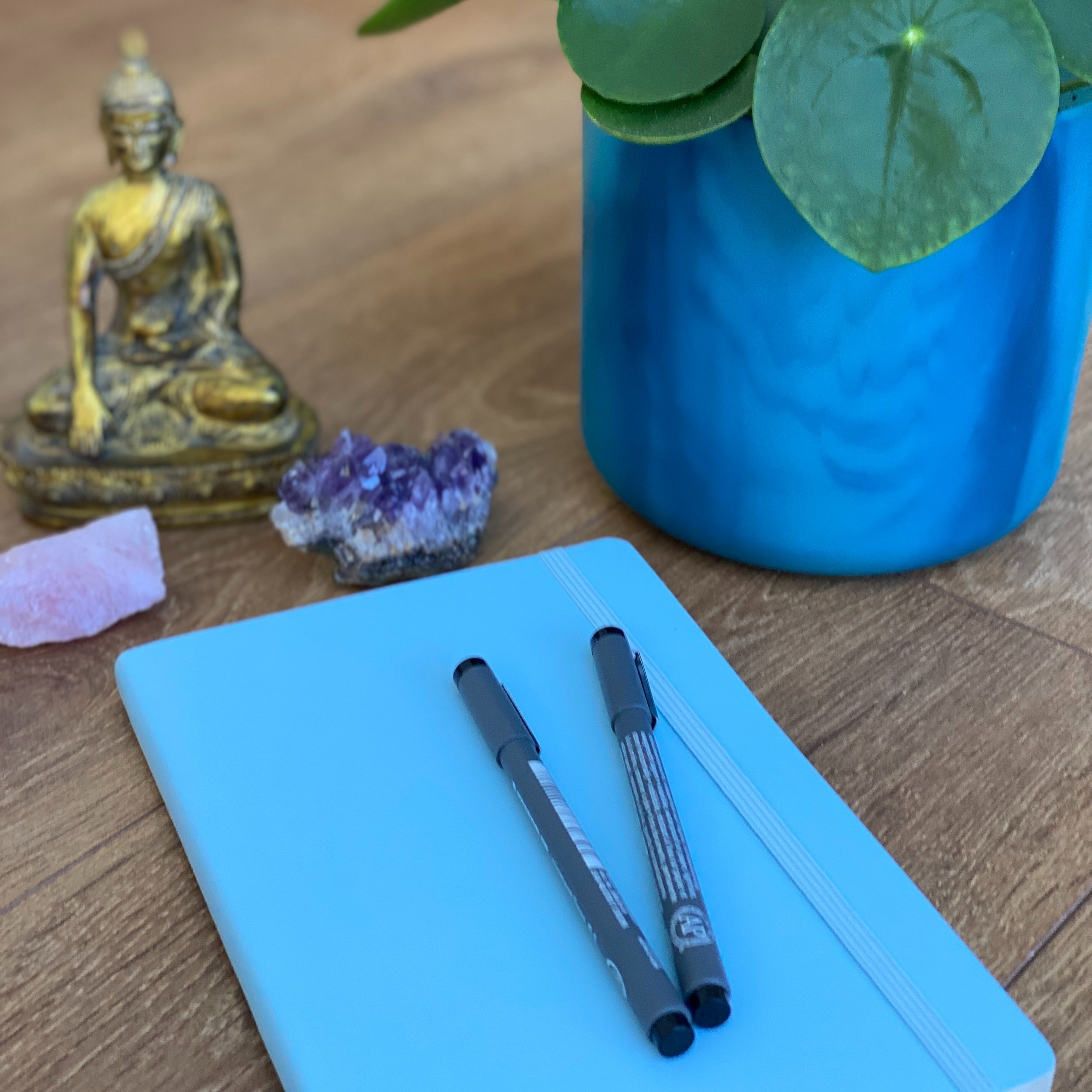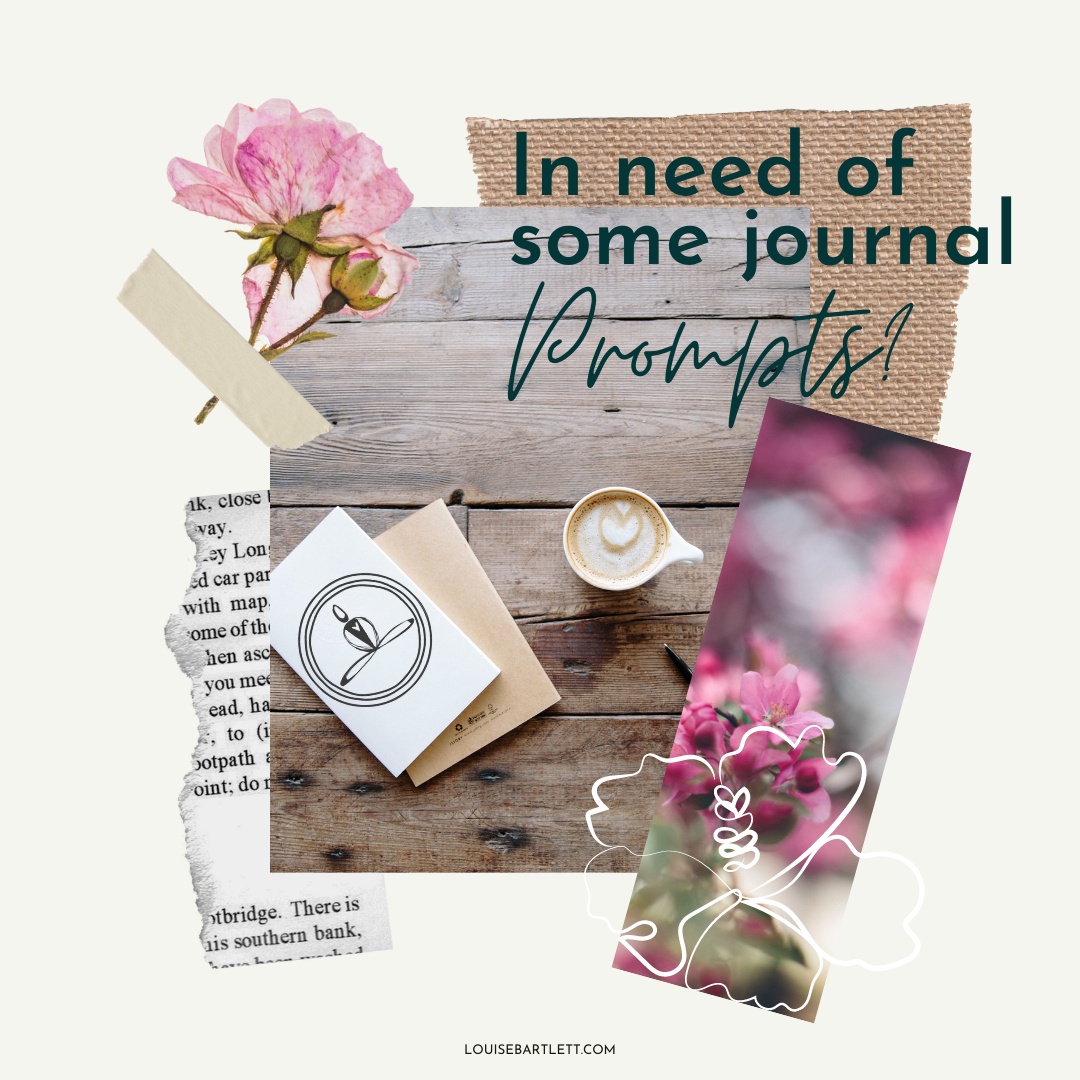Journaling made simple
Journaling is a powerful practice that can have a profound impact on our lives. Writing down our thoughts and feelings can help us gain clarity, process emotions and cultivate a deeper understanding of ourselves.
In this blog post, we’ll explore some of the powerful benefits of having a journaling practice. And, if you don’t know where to start, I’ll give you 10 prompts to get your creative juices flowing.
Consistent journaling:
Reduces stress and anxiety
Improves mental clarity and focus
Helps with goal setting and personal growth
Boosts creativity
Enhances self-awareness and self-expression
Let’s dive in as we look at 5 different ways that journaling can help to improve your overall wellbeing.
1.Reduces stress and anxiety
Journaling is a great tool for reducing stress and anxiety. Writing down your thoughts and feelings can help you release pent-up emotions and work through any negative feelings you may be experiencing. This can help you feel calmer and more relaxed and reduce your overall levels of stress and anxiety.
2. Improves mental clarity and focus
Journaling can help you improve your mental clarity and focus. When you write down your thoughts, you are able to organise them in a more structured way, which can help you make sense of them and see things more clearly. This can be particularly helpful if you are struggling with a problem or decision and need to get a clearer sense of what is going on. If you know me, you know I always create mind maps in my journals and sketch books, it’s a great way to map out your thoughts and prioritise them - it helps stop overwhelm.
3. Helps with goal setting + personal growth
Journaling can also be a great tool for setting and achieving your goals. By writing down your goals, you are able to clarify what you want to achieve and create a roadmap for how to get there. You can also use your journal to track your progress and celebrate your successes along the way. I always create a weekly wins list in my journal - which means jotting down the wins, big and small, so that I can look back each week and see how much progress I’ve made through the year.
In addition to helping you achieve your goals, journaling can also be a powerful tool for personal growth. As you reflect on your experiences and feelings in your journal, you may gain insights into your patterns of behaviour and thought that can help you make positive changes in your life.
4. Boosts creativity
Journaling can also be a great way to boost your creativity. When you write (and draw) freely in your journal, you are tapping into your unconscious mind and allowing yourself to explore new ideas and perspectives. This can help you come up with new and innovative solutions to problems and can also be a great way to explore your creative side. If you’re interested in adding more creative expression to your journal, then read about the Art of Bullet Journaling.
5. Enhances self-awareness and self-expression
Finally, journaling is a powerful tool for enhancing self-awareness and self-expression. By writing down your thoughts and feelings, you are able to explore and understand yourself more deeply. This can help you develop greater self-awareness and self-acceptance and can also be a great way to express yourself creatively.
10 journaling prompts to help inspire you
What are three things you are grateful for today, and why?
Describe a challenge you have overcome in the past and how you did it.
What are some of your favourite memories from childhood and why do they stand out to you?
Write about a time when you felt most proud of yourself and what you accomplished.
What are your top five values and why are they important to you?
Describe a person who has had a significant impact on your life and what you have learned from them.
What are some fears or limiting beliefs that are holding you back and how can you work to overcome them?
Write about a time when you felt particularly happy or fulfilled and what you were doing.
What are some short-term and long-term goals you have for yourself and what steps can you take to achieve them?
Reflect on a mistake you have made in the past and what you learned from it that you can apply to your life now.
Remember, journaling is a personal practice, so feel free to adapt these prompts to suit your needs or come up with your own prompts that resonate with you. The goal is to use writing as a tool for self-reflection and growth, so write whatever comes to mind and don't worry about being perfect or having it all figured out. Just let your thoughts flow and see where they take you.
Journaling is a powerful and creative tool for improving our mental health, achieving our goals and developing a deeper understanding of ourselves. By making journaling a regular part of your routine, you can experience these powerful benefits and create a more fulfilling and meaningful life.










